2 Jul 2014
Australian Federation Reform
The Hon. A.L. McLACHLAN ( 15:32 ): The workings of the federation should be of the utmost importance to the members of this chamber, as well as those in the other place. It is for this reason that I rise to provide the chamber with comment on a recent initiative of the commonwealth government. On Saturday 28 June 2014, the federal Liberal government released the terms of reference for the white paper on the reform of the federation. The white paper will present the commonwealth government’s position on the federation. I commend the Prime Minister for this initiative.
I am also encouraged by the commissioning of this important body of work as it presents the first steps in an important journey to improve the manner in which our federal system now operates. I agree with those who advocate that the reform of federalism has become an economic imperative. The lines of responsibilities between the states and the federal government have become confused. However, I hasten to add that this is largely not the fault of the states but rather of the commonwealth and its ambitious bureaucracy which consistently seeks to overreach its constitutional mandate.
It is my view that the federal system provides us with significant social and economic benefits. I find that the call for greater centralisation to Canberra is misguided and I fear that if this school of thought continues unabated the people of this state will lose the precious franchise that sustains it and underpins our community. A federal structure accommodates and encourages choice and diversity. It encourages creativity and competition, as well as ensuring government initiatives meet the needs of affected communities.
At the same time, it ensures that unbridled power does not coalesce in the one place. We need only gaze on foreign shores to witness federations successfully serving their member states and citizens. Germany and Switzerland are leading examples. I also find it curious that we talk so casually of centralisation in Australia, when in the very place where our democratic traditions were first formed the leaders in that country have subsequently devolved powers from the centre to the capitals of Wales and Scotland.
There is a line of argument in the national conversation that centralisation automatically equals efficiency or delivers some other community benefit. Yet the recent experience with the commonwealth rollout of the home insulation scheme demonstrates that decision-making that takes place far from the people can have unfortunate and tragic results. This has never been more evident than during the testimony given by witnesses in the current royal commission into this issue.
Research has indicated that across the globe federations have outperformed unitary states in economic terms. The national debate, indeed the debate in this state, must be about leveraging the benefits of the federation, rather than defaulting to the lazy and largely unsubstantiated argument that centralised power delivers more to the citizen.
This is not to suggest that our federalism cannot be improved. Indeed, it is my hope that this new examination of the relationship between the states and the federal government leads to important reform that reduces duplication, clarifies responsibilities and builds a new structure for intergovernmental cooperation.
I am greatly encouraged by the views of a former Labor premier, the Hon. John Brumby, who recently delivered the 2014 Hamer Oration at the University of Melbourne on this issue. He challenged us all to think, discuss and debate how to best improve our current federation. He acknowledged that our federation has delivered a significant level of fiscal imbalance which undermines the ability of our governments to take real accountability.
He suggested the financial arrangements between the states and the commonwealth are in need of recasting, together with their respective taxation regimes. In other words, we need to better align roles, responsibilities and revenues. This is not to say, however, that horizontal fiscal equalisation is not appropriate within the extant relationships between the commonwealth and the states.
I am disappointed that the honourable member for Cheltenham in the other place, the Premier, has labelled the government’s proposed reforms ‘transparent nonsense’ and commented that, ‘We’ll be trying to get rid of this doctrine that seems to have emerged about governments being sovereign in their own sphere.’ I believe that all South Australians must stand together and fight for the future of their community. We must aspire to be self-reliant. We must fight for our state to have the freedom to grow and not allow us to be addicted to conditional federal funding and complicit with the compulsory compliance obligations that inevitably accompany any grant.
I reject the proposition that the states are simply subcontractors for the federal government. We are sovereign. We are the true engines of competition and innovation on our continent. My ideal for the federation is that it accommodates the desires and needs of all the many regions that make up our nation. This can only truly be achieved by vibrant, energised and prosperous states. I look forward to the discussion and the debate that will accompany the white paper. I commend the federal government for this initiative.
View source
